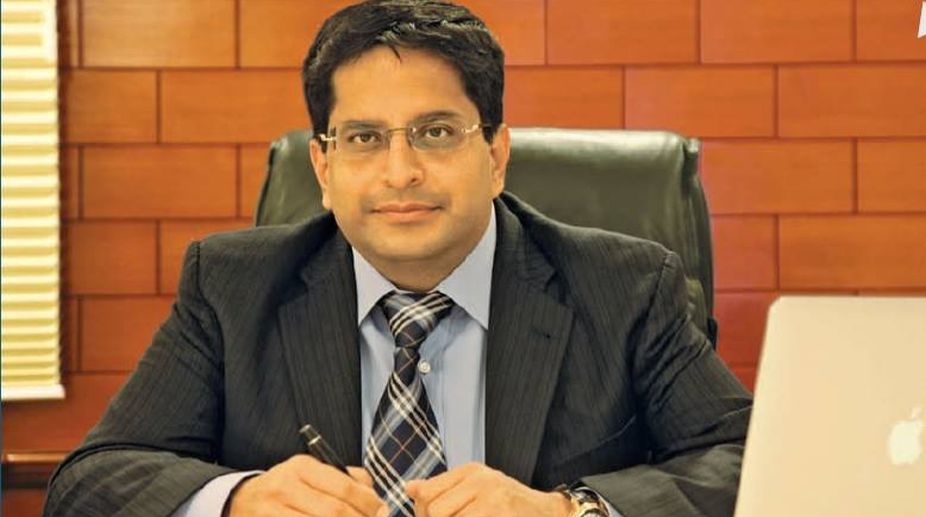The Education Promotion Society for India, which represents over 300 private universities and 3,000 colleges, has urged the government to remove GST on higher education.
Many committees in the past have suggested that the government should spend more than six per cent of the GDP on the education. However, we have never crossed four per cent limit. In a country, where lot of people opt out after primary education, putting the sector under the GST is likely to have a negative impact.
Advertisement
Prashant Bhalla, chancellor of Manav Rachna International University talks about the importance of sports education in today’s learning scenario and how GST has affected education sector.
Excerpts:
What are the unique features that make Manav Rachna Educational Institutions a better option?
Being a professional institution, research and innovation are really important for us. Contrary to the accepted archaic model of education system, we have developed a system, which is more process driven, practical oriented and meets the requirement in the present context of globalisation. Our first and foremost focus is to bring best education practices from all over the world along with the best people from the industry.
The effort is not only to make our youth more employable, well equipped with necessary knowledge but to also develop necessary skills of entrepreneurship. Whether we talk about updated curriculum, delivery model of a course or a particular skill set required for a sector, there should be perfect synergy with the industry.
What’s your say on the recent education trends in our country?
In the years to come, India will need to cater to a huge requirement of jobs, a challenging prospect in a background which could be conquered by robotics and artificial intelligence. Jobs will call for creative problem solving, analytics and significant thinking. Students need to be equipped to be great performers, team builders and leaders true to themselves and their organisation. Aptitude is important but even more important is attitude, integrity and engaging well with the environment. With startups being encouraged by the government, we are helping students to become job creators as well. There is no aspect of holistic development that is ignored and we not only have the best of academic faculty, but also coaches and facilities.
What are the competitive advantages for your students and how extensively are the courses designed?
We have more than 47 collaborations with various universities and institutes internationally for research and academic exchange programmes. We also have tie-ups with Indian Oil Corporation, R&D Centre, Faridabad; Translational Health Science and Technology Institute, Faridabad; Council of Scientific & Industrial Research – Indian Institute of Petroleum, Dehradun; and National Institute of Immunology, New Delhi.
Centers of Excellences have been established in collaboration with reputed companies like SuKam, Mitsubishi, Honda, SAP, Reliance Jio, and Sky Tester for enhancing research skills. We also have a centre of excellence in sports science and a centre for advanced water technology and research.
How can we motivate students to focus on smart learning and knowledge rather than just on marks?
Increased student engagement and motivation is the key to academic and behavioural success. The key is to encourage students to go above and beyond their comfort zone helps to construct and maintain confidence.
To achieve this, our institutions are actively engaged in research in several areas of engineering, basic and applied sciences, management, literature, physiotherapy, nutrition and dietetics, health, energy and environment, manufacturing, sports rehabilitation, architecture design, among others.
With all of these, our idea is to take research and innovation to a new level and bring the industry right to the campus, thereby promoting a culture of smart learning.
How has GST affected our education sector?
In a country where lot of people opt out after primary education, the government needs to think more like a business partner. The significance of education cannot be diluted, where almost half of its billion plus populace is below the age of 25.
Therefore placing the education sector under the GST is likely to have a detrimental impact on the overall value of education. We are expected to give good quality in academics but because of GST now we can either save on the outsourcing cost or save the fees.
To save outsourcing we will have to start running transport ourselves, canteen ourselves, by which we will get into mundane task which an educational institute should not get into.
Why should sports education be an important curriculum in today’s education scenario?
We believe that it is sports that give shape to the character of an individual. We have been integrating sports with the curriculum from the school level itself to enable students to grow into complete personalities.
We have given to the country many national and international level players across diverse sports. I am happy to note that schools and colleges are gradually beginning to understand the significance of sports in the overall growth of students.
This education always harmonises academic learning, building the overall character. Students imbibe the traits of endurance, obedience, discipline, the determination to win and willpower through sports.











